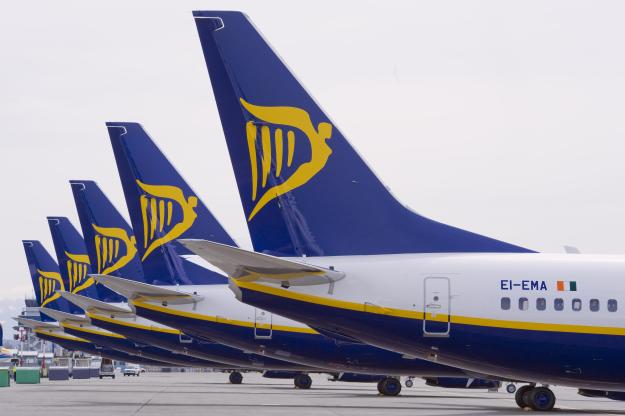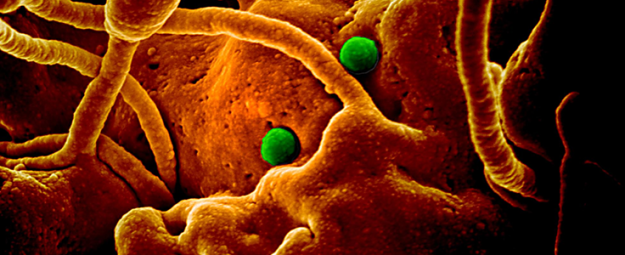
Airports Council International (ACI) World has published an Advisory Bulletin on the predicted global economic impact on the airports sector of the unfolding COVID-19 public health emergency.
As the World Health Organization (WHO) and the International Civil Aviation Organization (ICAO) have published a joint statement providing updated advice on COVID-19 and civil aviation, ACI World has predicted the economic impact of the outbreak on the global airport industry will be pronounced.
At the global level, ACI estimates that airport passenger traffic volume for the first quarter of 2020 will be down at least 12 percentage points compared to what ACI previously projected for the same quarter.
Asia-Pacific is the most impacted region with passenger traffic volumes down 24 percentage points as compared to previous business as usual forecasts for the first quarter of 2020. Europe and the Middle East are also expected to be significantly impacted by reductions in traffic. North America is expected to see similar declines in the second quarter of 2020 with recent service reductions just announced last week in North America and with more expected in the coming weeks.
This effect on passenger numbers and flight cancellations will result in reduced revenues from airport charges – while aeronautical revenues are being challenged in this way, the cost base for airport charges remains unchanged as airports have many fixed costs.
Prior to the COVID-19 outbreak, global airport revenues for the first quarter of 2020 were forecast to reach close to $39.5 billion USD. ACI now estimates a loss of revenues of at least $4.3 billion for a total revenue. Most of the loss in revenues is expected to occur in the Asia-Pacific region with a difference of $3 billion in projected revenue. This is approximately equal to the total annual revenues of two major European or Asian hubs combined.
At this time, Europe is the second most-impacted region, while all other regions will see the impact of the loss of passengers as more data becomes available.
ACI World is also urging a proportionate slot allocation response to COVID-19 that will preserve global airport connectivity. A global suspension of slot rules would jeopardize the ability for countries to stay connected with the world which will in turn have knock on effects to economies. ACI World favours an evidence-based market-by-market review.
Depending on local circumstances, a relaxation to a lower threshold as a first step may be considered in the case of markets where airlines are trimming capacity to reflect the lower demand impact experienced on routes not as directly impacted. In markets that are severely impacted, a suspension of the 80/20 rule may be considered for a limited period, in consultation with airport operators, airlines and slot coordinators.
“The airport industry recognizes that all stakeholders of the aviation ecosystem are heavily impacted by the COVID-19 outbreak, and as such favours a strengthened cooperation between airports, airlines, and regulatory authorities as the industry responds to the outbreak,” ACI World Director General Angela Gittens said.
“The sudden shock represented by the COVID-19 outbreak is affecting passenger and cargo traffic worldwide, markedly in Asia-Pacific and significantly reducing airport revenues.
“Airports rely heavily on airport charges to fund their operating and capital costs and operators find themselves under intense pressure during periods of traffic decline. Airport revenues must be sufficiently protected to ensure safe and sustainable operations. Measures to limit the collection of airport charges would be ill-advised.
“ACI World and all ACI Regions are also urging a proportionate slot allocation response to COVID-19 that will preserve global airport connectivity and favours a market-by-market review which is evidence based when it comes to assessing slot usage requirements. An evidence-based review would examine infection rates, load factors, forward booking forecasts, and the impact on the environment of continuing certain services.”
As the situation continues to unfold quickly, and cognizant that the above analyses are based on data from ACI databases and on scheduled capacity extracted in early March 2020, ACI World will continue to closely monitor the situation and adjust its advisory accordingly.

ICAO-WHO joint statement on COVID-19:
The World Health Organization (WHO) and the International Civil Aviation Organization (ICAO) published a joint statement providing updated advice regarding COVID-19 and civil aviation.
Signed by the Director General of the WHO, Dr. Tedros Adhanom Ghebreyesus, and by ICAO Secretary General Dr. Fang Liu, the statement also reaffirms their commitment as UN specialized agencies to foster greater international cooperation to contain the virus and to protect the health of travellers.
The statement noted the importance of States adhering to ICAO and WHO standards relating to the prevention of the spread of communicable diseases, and to follow the International Health Regulations (2005).
ICAO itself has been working closely with governments and industry partners such as the International Air Transport Association (IATA) and Airports Council International (ACI), to provide guidance to aviation authorities, airlines and airports, and advice to individuals, on appropriate measures that will protect the health of travellers and reduce the risk of transmission.
ICAO issued two electronic bulletins and a State letter to urge Member States to adhere to the recommendations and guidance provided by the WHO, and to highlight ICAO’s role in providing aviation-related information on COVID-19, and in serving as the key facilitator for States and organizations that are members of the ICAO Collaborative Arrangement for the Prevention and Management of Public Health Events in Civil Aviation CAPSCA) programme to implement effective collaboration and coordination with all stakeholders.
The ICAO State letter directly urged national governments to implement the relevant provisions of Annex 9 to the Convention on International Civil Aviation (Chicago Convention), to formalize their membership in CAPSCA and augment its funding for communicable disease response preparedness, and to establish a National Air Transport Facilitation Committee.
Given the importance of considering detailed health and disease information alongside civil aviation policies and procedures surrounding COVID-19, both ICAO and the WHO have been working closely together in recent weeks in order to develop expert advice and ensure coordinated global action.
Their statement today stressed the importance of greater public-private cooperation and inter-agency dialogue, and accordingly has urged States and relevant organizations to join ICAO’s Collaborative Arrangement for the Prevention and Management of Public Health Events in Civil Aviation (CAPSCA).
Government aviation and health officials were also reminded to enhance cross-sector collaboration at the national level and establish National Facilitation Committees as required by ICAO Standards.
The new joint statement comes amidst increased international cooperation in order to coordinate a more effective response to COVID-19, and was welcomed by aviation industry groups.
“Stopping the spread of the virus is the top priority,” underscored Mr. Alexandre de Juniac, IATA’s Director General and Chief Executive Officer.
“IATA and the airlines are working closely with WHO, ICAO, and ACI to ensure that harmonized and updated procedures are made available in order to keep passengers safe, the world connected, and the virus contained. Travellers should be reassured that the industry is prepared to deal with communicable diseases as a result of experiences with previous outbreaks. The International Health Regulations of WHO are the established foundation for the coordinated global effort that will be required by all involved”
Ms. Angela Gittens, Director General of ACI similarly expressed appreciation towards the multi-sector and multi-agency communication reflected in the statement.
“The COVID-19 outbreak and its impact on aviation has highlighted the need for effective coordination and a proportionate response from States,” she highlighted. “ACI welcomes the leadership shown by ICAO and WHO in this regard and would urge States to follow WHO advice. The health and welfare of travellers, staff and the public, and limiting the spread of communicable diseases, are the priorities for the aviation industry, so it is in all of our interests to have a common, easily understood, approach to help to prevent the spread of illness. We also welcome the practical steps suggested by WHO that can assist travellers to protect themselves.”
The joint statement complements the ongoing efforts of ICAO and WHO in response to COVID-19.
ICAO has also published a new web area to serve as a single source for civil aviation-related information on COVID-19. Daily statistics on the evolution of the COVID-19 outbreak and its impacts on aviation are also made available through the site.
Coronavirus Interactive Map in Real Time:






